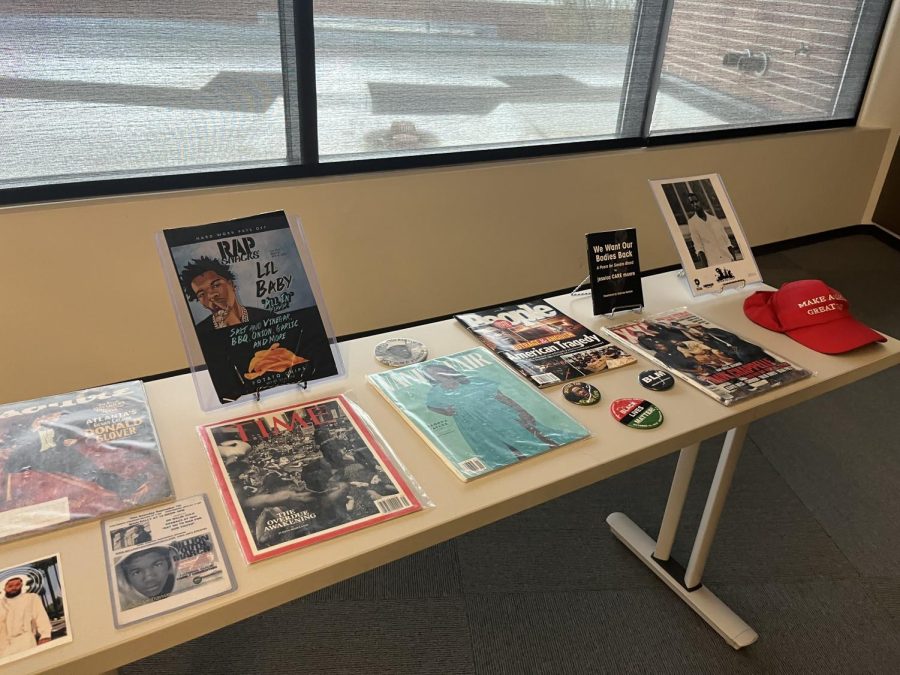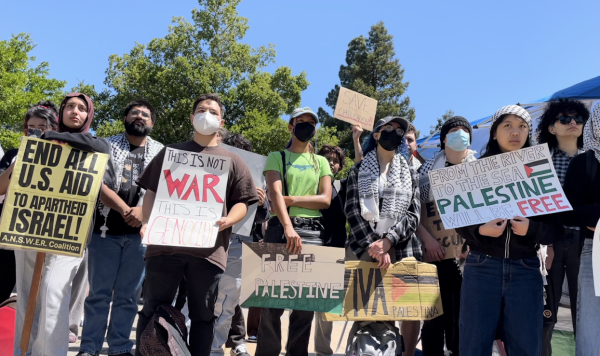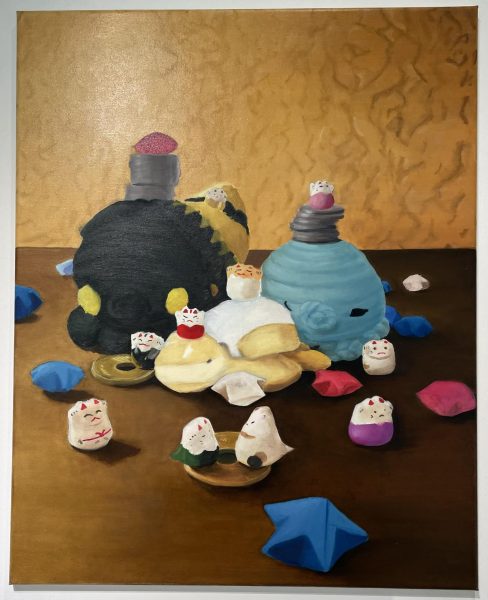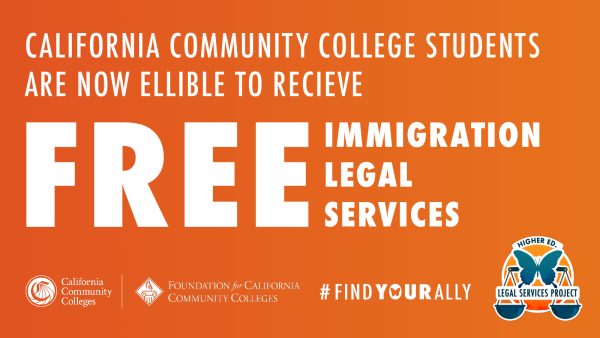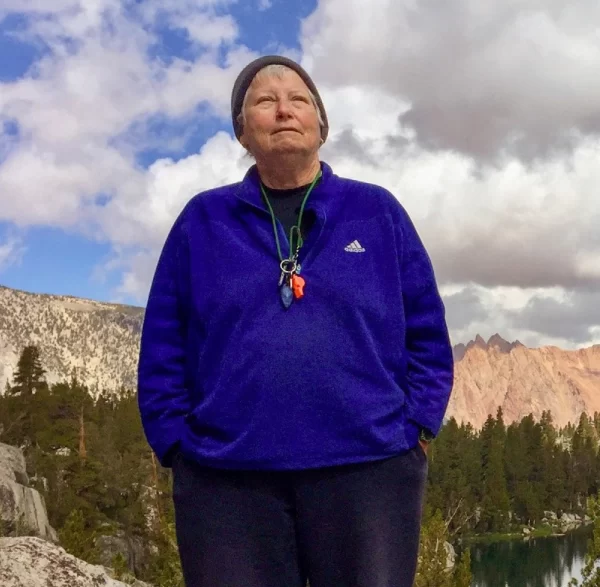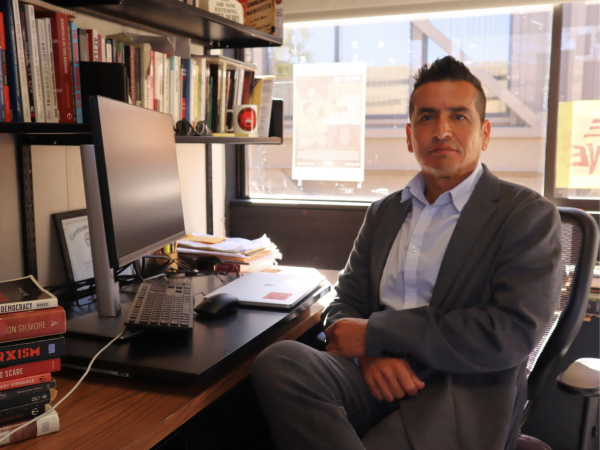Mobile Museum Visits DVC: Celebrating Black History Month with 50 Years of Hip-Hop
David Ruffin’s “Walk of Love” played over the speakers in the Diablo Room as students browsed two lines of tables laid out with magazines celebrating Kendrick Lamar, Donald Glover, Tupac and LL Cool J.
There were also CDs and records by Grandmaster Flash, Common, Lauryn Hill and A Tribe Called Quest. A Jay-Z ticket stub from his Magna Carter tour was included as well as a Will Smith signed photo.
With hip-hop turning 50 years old in 2023, Dr. Khalid el-Hakim, founder and curator of the Black History 101 Mobile Museum, dedicated one side of the recent exhibition room to “look[ing] at hip-hop culture through the lens of social movements” during the museum’s appearances at DVC.
DVC’s Student Equity Workgroup arranged for el-Hakim’s museum to visit both the San Ramon and Pleasant Hill campuses during Black History Month.
El-Hakim’s collection contains over 7,000 original artifacts of black memorabilia dating from trans-Atlantic slave trade era to hip-hop culture, and provided a centerpiece event during February’s celebration of Black History Month.
The exhibit contained everything from a MAGA hat resting in front of a photo of Kanye West to a cassette of Public Enemy’s Fear of a Black Planet.
Creating and curating the museum has been an organic process, according to el-Hakim.
“The day after the Million Man March [1995], this small collection of material I had became the Black History 101 Mobile Museum,” he said. “I started taking these small exhibits around to little grassroots meetings, just sharing material, and then that grew into something amazing.”
During the five-hour exhibit, el-Hakim hosted an hour-long talk which gave insight to his personal connection to hip-hop’s roots.
“I worked in the hip-hop industry as a booking agent, manager, and label owner,” he said. “One of my very first clients was a group called ‘The Last Poets,’ who are considered the forefathers of the culture.”
Dr. Matthew Powell, who teaches history at DVC and black studies at Los Medanos College, talked about hip-hop’s effect on him and the black community as he introduced el-Hakim.
“Hip-hop helped give us the license that general society didn’t give us,” said Powell.
Opposite the hip-hop memorabilia were Black Panther Party stickers, a D.C. March for Freedom souvenir pennant, a segregated restroom sign, a letter from Rosa Parks to her mother, and excerpts written by Malcolm X, among many other artifacts.
El-Hakim also talked about how people were made to believe racist behavior was normal at a young age.
“Because of certain media, you’re getting socialized into being desensitized to violence against young black children,” el-Hakim said in reference to racist caricatures in “The Little Rascals” and old theological books declaring black people inferior beings.
He brought up a guest speaker in Dr. Fredrick Douglass Dixon, director of the Black Studies Center at University of Wyoming, to share his thoughts.
“Eurocentric education in itself is not crafted for us to be liberated,” Douglass Dixon said. “Not as black people. Not here in America. And not across the globe.”
When the talk exceeded its scheduled time limit, el-Hakim explained he was not yet finished but that people were allowed to leave. The entire audience remained in their seats, waiting for the next slide of the presentation.
Other DVC Black History Month events included Lasana O. Hotep’s talk at Contra Costa College, titled “Resistance & Preservation of African Cultural Traditions,” which took place on Feb. 23, and the Wikipedia Edit-A-Thon and Tiffani Marie’s talk as part of the Social Justice Speaker Series both on Feb. 27.





































































